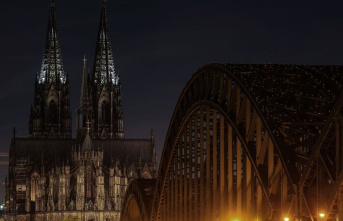In the opinion of Bavaria, the federal government does not involve the federal states, industry and investors enough in the implementation of the national hydrogen strategy. "Far too little is happening here, everyone involved talks far too little to each other," said Hubert Aiwanger (Free Voters), the Minister for Economics and Energy responsible for the Free State of the German Press Agency in Munich.
There are currently many ideas and initiatives from individuals, but these are often not sufficiently coordinated.
At the turn of the year, Bavaria takes over the presidency of the conference of economics ministers. That's why Aiwanger has decided to put this topic at the top of the agenda: "We have to develop an overall concept, make a joint plan on how we can reach our goal as quickly as possible." Germany is slipping the time. For example, it is necessary to record the individual potentials of the countries and their respective interests, said Aiwanger. In working rounds, everyone involved would have to be brought to one table.
Using gas pipelines for hydrogen
From Aiwanger's point of view, the problem in the current phase is particularly evident in the expansion of the distribution grids. The establishment of a new state hydrogen network company planned by the federal government was doomed to fail, he said. This will delay the expansion unnecessarily, since the operators of the gas networks would already see much more clearly what is needed. A large part of the available gas pipelines can be used for hydrogen.
Ambitious goals are also needed to make hydrogen available as quickly as possible. For Bavaria, this means for him: a connection to hydrogen pipelines for the years "2025 following". Here, for example, the announcement by the transmission system operators Gascade, Ontras and terranets bw about the construction of a pipeline from the Baltic Sea to Thuringia by 2025 gives him hope that Bavaria will then also be connected quickly.
If it helps, he could also imagine building a pipeline from Bavaria to Thuringia. The operators themselves expect transport to Bavaria and Baden-Württemberg from 2030.
"Green" hydrogen essential for climate goals
Hydrogen produced in a climate-neutral manner will play an important role in the energy transition in Germany. "Green" hydrogen is considered essential to achieve the climate goals. With electricity from renewable sources, the hydrogen is produced by electrolysis, with which the energy requirements of the steel industry are to be covered, for example. The energy source produced from green electricity is currently still scarce and comparatively expensive.
Even without a connection to an international pipeline network, Aiwanger expects that the topic and practical use will continue to gain in importance. In Bavaria, for example, there will be filling stations for trucks that will be supplied with regionally produced hydrogen. In order for industry to be able to switch to hydrogen, however, an international pipeline supply is needed.







